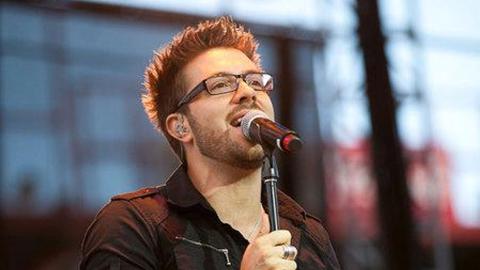
Israel Strikes Beirut, Targeting Hezbollah Commander for Rocket Attack on Children
PHOTO: People gather near a destroyed building that was hit by an Israeli airstrike in the southern suburbs of Beirut, Lebanon, Tuesday, July 30, 2024. An Israeli airstrike hit Hezbollah's stronghold south of Beirut Tuesday evening causing damage, a Hezbollah official and the group's TV station said. (AP Photo/Hussein Malla)
JERUSALEM, Israel – Tensions are reaching a boiling point along both sides of the Israel-Lebanon border after the Hezbollah rocket attack that murdered 12 Israeli children playing soccer over the weekend. The Israeli military struck back on Tuesday, hitting the Lebanese capital of Beirut in a single targeted drone attack aimed at a top terrorist leader.
It appears to be the start of retaliation in the wake of that deadly rocket attack fired from Lebanon.
"Hezbollah crossed a red line,” Israeli Defense Minister Yoav Gallant posted on X shortly after Tuesday's airstrike.
IDF: Initial report- the @IDF carried out a targeted strike in Beirut, on the commander responsible for the murder of the children in Majdal Shams and the killing of numerous additional Israeli civilians.
— Israel ישראל (@Israel) July 30, 2024
Israel also appeared to confirm the elimination of the Hezbollah commander Fuad Shukr in the Beirut strike.
Fuad Shukr, Hezbollah's most senior military commander was responsible for the 1983 attack in Lebanon which killed 241 US marines.
— Israel ישראל (@Israel) July 31, 2024
He was also behind the rocket attack which murdered 12 children in Majdal Shams (Northern Israel).
He is no longer a threat. pic.twitter.com/Ae3rHIyxqD
*********
On Monday, Israeli Prime Minister Benjamin Netanyahu broke away from his War Cabinet to visit the Druze village hit by that Hezbollah rocket over the weekend.
As he consoled families of the 12 children and teenagers killed in the attack, Netanyahu expressed solidarity with the people and vowed a strong response. “Like all citizens of Israel – and I must tell you, like many people across the entire world – we were profoundly shocked by this terrible killing," he stated.

The prime minister had also pledged to send a powerful message to the Iranian-backed Hezbollah in Lebanon. He declared, “These children are our children; they are the children of us all. The State of Israel will not, and cannot, ignore this. Our response will come and it will be severe.”
***Please sign up for CBN Newsletters and download the CBN News app to ensure you keep receiving the latest updates.***
Retired Maj. General Yaakov Amidror of the Jerusalem Institute for Strategic Studies tells CBN News Israel must take the time it needs to ensure a successful mission.
“We are not in a rush. Not at all," Amidror said. "The more we can be prepared, the better. If we need to wait another week, it's more than okay. Here we have to retaliate and the retaliation should be well prepared before you. You have to prepare the retaliation, and all the arrangements for the consequences of the retaliation.”
In anticipation of a coming attack, The Associated Press reports Hezbollah is preparing its own retaliation that would involve precision-guided, long-range missiles. The report adds that Hezbollah doesn't want a full-blown war.
Amidror added that Israel's show of force would indicate what direction it was ready to take. “(It) very much depends on the decision of the decision-makers. (Are) they ready to go to a big war?" he asked.
Amidror contends that Israel will hit two different sets of targets depending on the decision on whether to go to all-out war, and he added, "It very much depends on the readiness or willingness to go to a big war."
Amidror lists key points Israel needs to consider before it chooses a full-scale war, including:
* quality and quantity of ammunition
* whether the economy can endure six to nine months of war
* domestic and international legitimacy, especially from the U.S.
* the Israel Defense Forces' level of readiness
* the level of readiness on the home front
Amidror concluded, “These are the elements that should be considered before someone is saying, yes, I am ready to go for war.”





